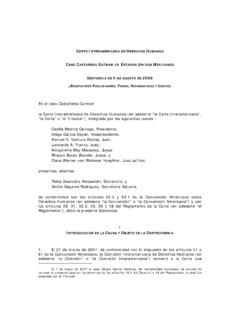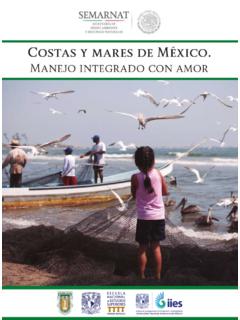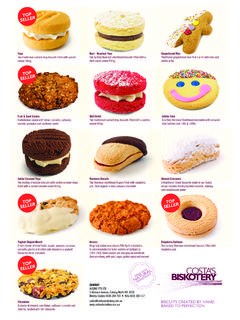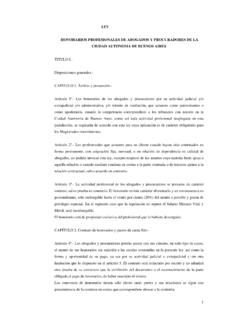Transcription of Three-Story House (Costa’s Levels of Questioning) T
1 : Inquiry Tutor/Student Handout (1 of 2). Three-Story House (Costa's Levels of Questioning). T. o better understand the content being presented in their core subject areas, it is essential for students to learn to think critically and to ask higher Levels of questions. By asking higher Levels of questions, students deepen their knowledge and create connections to the material being presented, which in turn prepares them for the inquiry that occurs in tutorials. Students need to be familiar with Costa's (and/or Bloom's) Levels of questioning to assist them in formulating and identifying higher Levels of questions. Directions: Read the poem below and review the Three House Story on the next page. Both set the stage for Costa's Levels of Questioning. One-Two-Three Story Intellect Poem There are one-story intellects, two-story intellects, and Three-Story intellects with skylights.
2 All fact collectors who have no aim beyond their facts are one-story people. Two-story people compare, reason, generalize, using the labor of fact collectors as their own. Three-Story people idealize, imagine, predict their best illumination comes through the skylight. Adapted from a quotation by Oliver Wendell Holmes 80 Tutorial Support Curriculum Resource Guide : Inquiry Tutor/Student Handout (2 of 2). The Three-Story House Level 1 (the lowest level) requires one to gather information. Level 2 (the middle level) requires one to process the information. Level 3 (the highest level) requires one to apply the information. 3 Applying Evaluate Generalize Imagine Judge Predict Speculate If/Then Hypothesize Forecast 2 Processing Compare Contrast Classify Sort Distinguish Explain (Why?). Infer Analyze 1 Gathering Complete Define Describe Identify List Observe Recite Select Unit 2: Before the Tutorial 81.
3 : Inquiry Tutor/Student Handout Vocabulary: Costa's Levels of Thinking and Questioning LEVEL 1. Remember Define List Recall Match Repeat State Memorize Identify Name Describe Label Record Show Give examples Rewrite Review Tell Understanding Restate Recognize Locate Extend Discuss Explain Find Summarize Express Report Paraphrase Generalize LEVEL 2. Use Dramatize Use Translate Interpret Understanding Practice Compute Change Prepare Operate Schedule Pretend Demonstrate Imply Relate Discover Infer Apply Illustrate Solve Examine Diagram Question Analyze Criticize Distinguish Inventory Differentiate Experiment Compare Categorize Select Break down Contrast Outline Separate Discriminate Divide Debate Point out Create Compose Draw Plan Modify Design Arrange Compile Assemble Propose Suppose Revise Prepare Combine Formulate Write Generate Construct Organize Devise LEVEL 3.
4 Decide Judge Rate Choose Conclude Value Justify Assess Summarize Predict Decide Select Evaluate Measure Estimate Supportive Prove your answer. Give reasons for Explain your answer. Why do you feel that Evidence Support your your answer. Why or why not? way? answer. 82 Tutorial Support Curriculum Resource Guide : Inquiry Tutor/Student Handout (3 of 6). Costa's Levels of Questioning: English LEVEL 1 LEVEL 2 LEVEL 3. What information is given? What would happen to you Design a _____ to Locate in the story Would you have done the same Predict what will happen to thing _____ as _____ is When did the event take place? changed. What occurs Point to Write a new ending to the story Compare and contrast _____ to (event).. List _____ . Describe the events that might Name What other ways could ____ be occur interpreted? Where Add something new on your own What is the main idea of the story that was not in the What (event)?
5 Pretend you Who What information supports your explanation? What would the world be like Illustrate the part of the story What was the message in this piece (event)? Pretend you are a character in the Make a map story. Rewrite the episode from Give me an example your point of view. What is the origin of the word _____? Describe in your own words what What do you think will happen to _____ means. _____? Why? What events led to _____? What does _____ suggest What is most compelling to you about _____'s in this _____? Why? character? Could this story have really What lines of the poem express happened? Why or why not? the poet's feelings about _____? If you were there, would What is the author trying to How would you solve this prove? What evidence does he problem in your life? present? Unit 2: Before the Tutorial 85. : Inquiry Tutor/Student Handout (6 of 6).
6 Bloom's Levels of Questioning: English and Social Science 1. KNOWLEDGE recalling 2. COMPREHENSION 3. APPLICATION using information understanding meaning learning in new situations What information is given? What are you being asked to find? What would happen to you if .. ? What are you being asked to find? Explain the concept Can you see other relationships that will help you find this Locate in the story Give me an example information? When did the event take place? Describe in your own words what Would you have done the same thing _____ means. Point to Illustrate the part of the story List What occurs when .. ? Make a map Name If you were there, would you .. ? This event led Where How would you solve this problem Describe the in your life? What In the library (on the Web), find info Who 4. ANALYSIS ability to see 5. SYNTHESIS parts of 6.
7 EVALUATION judgment parts and relationships information to create new whole based on criteria Compare and contrast _____ to Design a _____ to How can you tell if your analysis is _____ . reasonable? Predict what will happen to _____. What was important about .. ? as _____ is changed. Would you recommend this _____. to a friend? Why? What other ways could ____ be What would it be like to live .. ? interpreted? What do you think will happen to Write a new ending to the story _____? Why? What things would you have used (event). to .. ? What significance is this event in the Describe the events that might occur global perspective? What is the main idea of the story (event)? What is most compelling to you in Add a new thing on your own that this _____? Why? What information supports your was not in the story. explanation? Do you feel _____ is ethical?
8 Pretend you Why or why not? What was the message in this piece What would the world be like if .. ? (event) .. ? Could this story have really happened? Why or why not? 88 Tutorial Support Curriculum Resource Gui




